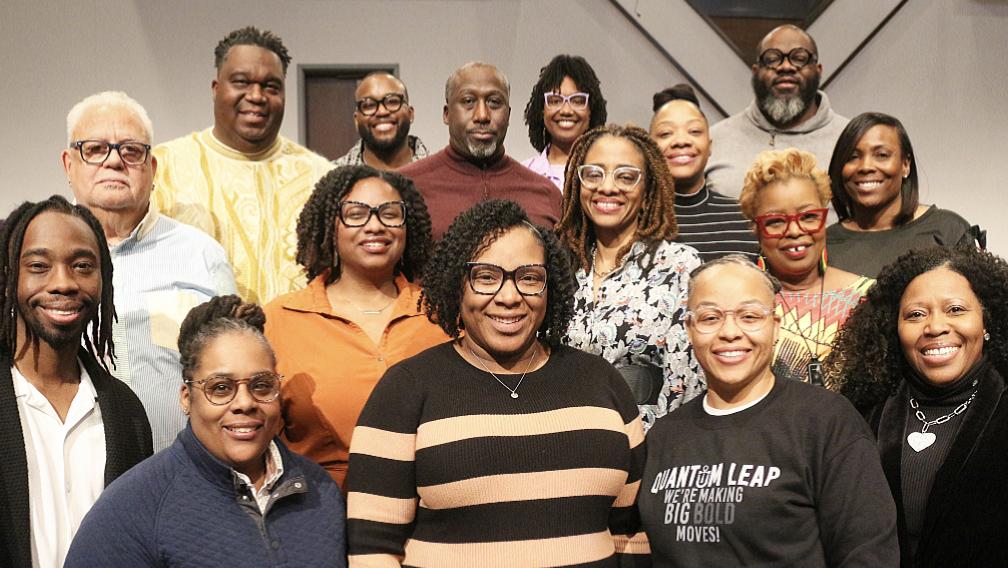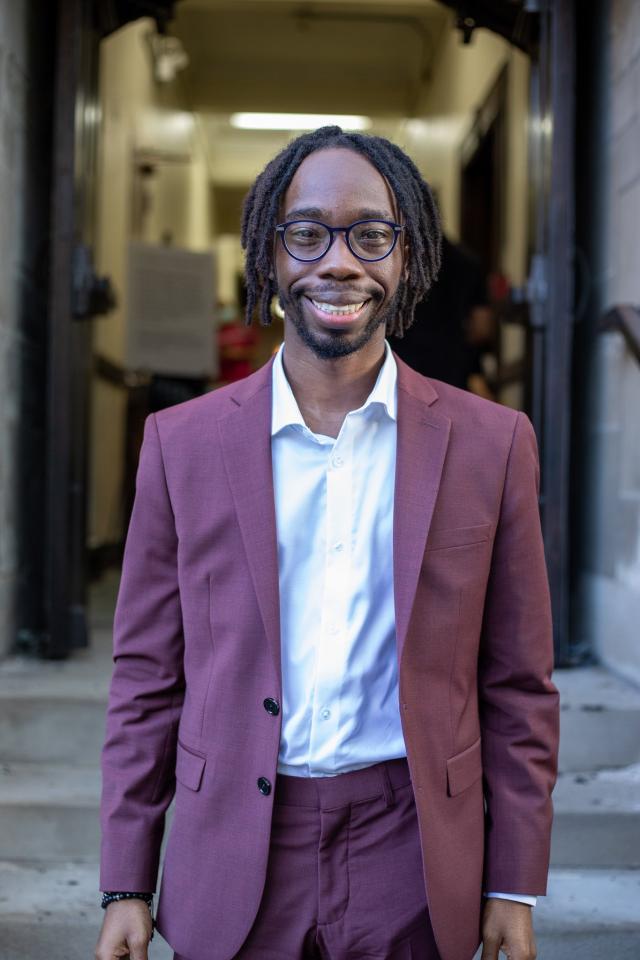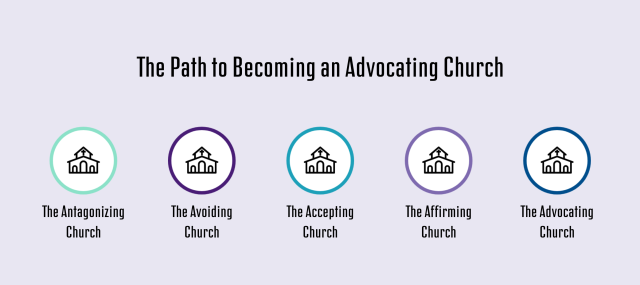The Rev. Don Abram grew up in a “hand-clapping, toe-tapping” Black church on the South Side of Chicago. As a teenager, he understood instinctively that coming out would mean losing his faith community. Still, Abram couldn’t ignore God’s call to serve. He became a junior deacon, a choir member, and a celebrated young preacher. He poured everything into his community — which is why, when protests emerged over the police killing of George Floyd in spring of 2020, he couldn’t help but wonder if the Black church would stand up for Black queer lives.
“As a queer son of the Black church, I questioned whether, even if they were present, would they be saying, ‘Black queer lives matter?’”
It was this question — and Abram’s “holy hope” for a better way forward — that led him to work with Trinity Church to create a first-of-its-kind leadership development program, the Black Church Equality Fellowship (BCEF). A project of Pride in the Pews, the nonprofit LGBTQ+ advocacy group Abram founded in 2020, BCEF gives Black faith leaders the tools to transform their congregations into safe spaces for Black queer Christians.
Supported by two leadership development grants from Trinity totaling $450,000, BCEF has reached 20 Black faith leaders from across the country. Now in its second year, the fellowship program has renewed Abram’s hope for the Black church.
“I started out with this belief that if we meet Black church leaders where they are, if we provide them with culturally competent and relevant resources, we might be able to invite them into LGBTQ+ inclusive work,” Abram said. “I’m proud of the fact that when the invitation was extended, the Black church answered.”
According to the Public Religion Research Institute, most African Americans (64%) identify as Protestant. Compared to other religious groups, Black Protestants have shown significant support for policies that protect queer Americans from discrimination. In 2023, more than three-quarters (77%) of Black Protestants favored laws protecting LGBTQ+ Americans from discrimination in housing, employment, and public accommodation, while 68% opposed allowing business owners to refuse to provide products or services to gay or lesbian people for religious reasons. However, when it comes to marriage — a good indicator of a group’s religious beliefs — Black Protestants are much more divided, with only 52% saying they were in favor of allowing same-sex couples to marry.
This is the gap Pride in the Pews wants to address. The Black church has historically understood that God is on the side of the oppressed but has too often failed to include queer people in that equation. The organization’s goal is to help congregations see that LGBTQ+ people are an inextricable part of the church.
“God loves us unapologetically and without reservation,” Abram said. “Our unique identities are a gift to the body of Christ and to the world around us.”
Pride in the Pews launched in 2020 with a project that gathered the stories of 66 Black queer Christians. Through these interviews, the team identified five different categories of churches: the antagonizing church, the avoiding church, the accepting church, the affirming church, and the advocating church. On one end of the spectrum, the antagonizing church dehumanizes LGBTQ+ people. On the other end, the advocating church reaches beyond its four walls to promote the physical, emotional, and spiritual health of all queer people. The church leaders most willing to reach out to Pride in the Pews come from congregations that range from avoiding to affirming.
“We’re interested in churches in the murky middle. That’s where our expertise lies,” Abram said. “When you aren’t fully affirming, but aren’t antagonizing, and you want to figure out how to move forward.”
In the beginning, Pride in the Pews trained churches one-by-one. But Abram and his team soon realized faith leaders needed more consistent support. Some pastors hadn’t learned about queer theology in divinity school and wanted more resources. Others lacked the funds needed to create educational programming for their congregants. Many wanted to be connected to a larger network of Black faith leaders doing this work.
“We realized we needed to create a fellowship that provides ongoing coaching and support, creates financial incentive, and allows folks to build community as they learn together,” Abram said.
In 2023, Trinity Church stepped in with a $150,000 grant to help Pride in the Pews establish the Black Church Equality Fellowship. After a successful year with the first 10 fellows, Trinity recently awarded the nonprofit $300,000 to reach more faith leaders over the next two years.
In addition to in-person and virtual training sessions, fellows receive $4,000 grants to implement action projects that help congregations have informed discussions about LGBTQ+ inclusion. Past projects have included book talks, leadership retreats, and Bible studies.
Abram spoke of one fellow whose African Methodist Episcopal church was stuck in the “avoiding” stage of the spectrum, meaning they did not discuss LGBTQ+ issues at all. The fellow was initially concerned his congregation wasn’t ready to broach the topic. But when he proposed applying to the BCEF, he realized the church wasn’t resistant to the conversation — they were just waiting for him to start it. By the end of the fellowship, the church had decided to make LGBTQ+ inclusion a central part of their identity.
The Rev. Abdue L. Knox, a 2024 fellow, is the pastor of Greater Bethel AME Church in Charlotte, North Carolina. When he asked senior leaders at his 127-year-old church whether he should apply to BCEF, it was a 90-year-old board member who urged everyone to move forward.
“He said he doesn’t understand what the letters [in LGBTQ+] mean, but he knows everyone needs Jesus. We don’t need to build barriers blocking people from Jesus,” Knox recalled.
Several months into the fellowship, Knox said he’s grown tremendously.
“God is truly changing me. I realized that many times, I have misrepresented God and subjected people to the ill treatment that I fight against,” he said. “We have to do the right thing because it is the right thing to do.”
Abram said it’s not easy to accompany congregations as they make this journey. It requires flexibility, trust, and time. But every step, however small, is worth it.
“The prevention of one homophobic sermon or problematic comment can actually save a life,” he said. “Even if it seems we’re moving at a snail’s pace against existing norms and theologies, we find solace in the fact that we can engage in harm reduction, encourage a spirit, keep a child in the home.”
Plan Your Week at Trinity
Find out what’s happening each week at Trinity Church Wall Street: services, special programs, and more.


